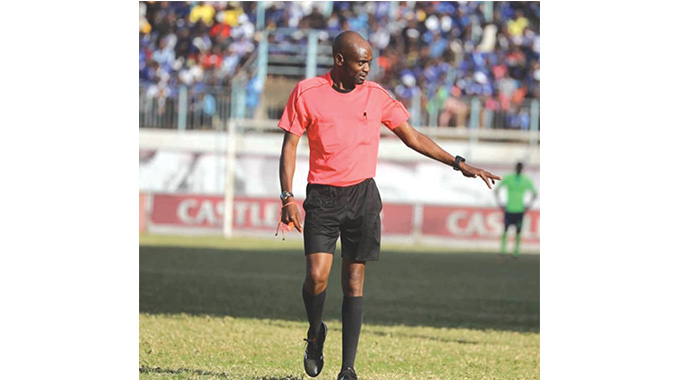Beyond political façade: Searing the veneers of political shenanigans

Pathisa Nyathi
“Then from Gwayi what happened to you?”
“I had become a military animal. I had looked forward to a good career in the army, but that was not to be. The reason was simple, we the senior guerrillas were frustrated from joining the army. That was done by the British. In fact, from the Zipra side more than three quarters of comrades who were instructors were blocked from joining the Zimbabwe National Army (ZNA). Just look at Jack Mpofu and Billy Mzamo, career military men who ended up joining the ranks of the ‘povo’ while during the liberation struggle had been on the fore-front. I should repeat that I was hurt, I had wanted to serve in the army. I was then demobilised and in frustration moved back to civilian life after all those years living in the bush. . . I had my eyes on the academics, but then came our problems, which saw me being hunted down again. I moved back into the bush.”
THE above is an excerpt from a scintillating interview of Tennyson Mlobi Khutshwekhaya Ndlovu (Hazeck Magedlela) by Mkhululi Sibanda, the Assistant Editor of Sunday News. It was in the issue of 20-26 September 2020. We draw from the interview as it is a pointer to what went wrong soon after Zimbabwe’s independence and provides a window of opportunity for the resolution of the long-standing political conflict, now generally referred to as Gukurahundi. Thambolenyoka was quite frank with regard to his disgruntlement and disillusionment at a time when he keenly looked forward to securing a long career in the Zimbabwe National Army which was being cobbled by the British Military Advisory and Training Team (BMATT).
His observations and wishes back then compare favourably with those captured by Stanford Sithole (Dumisani Tembo) in his book, “Stanford Sithole (Dumisani Tembeo/Dakamela): The Story of a ZPRA Guerrilla 1976-1982” who apparently was trained by Thambolenyoka at Mwembeshi in 1976. He too had looked forward to a glorious career in the national army. In his case he was integrated into the ZNA in 1980, only to be flushed out two years later at a time when there was selective demobilisation and disarmament of former ZPRA elements within the new army. For some people this stage towards the development of Gukurahundi may not be that familiar. What is more familiar is the second stage starting in January 1983 when the civilians were the targets.
The likes of Thambolenyoka had chosen a military career which was denied them. The senior guerrillas as he rightly points out had embraced a Marxist-Leninist ideology. Given that BMATT) held a totally different political ideology, it is not surprising, as Thambolenyoka asserts, that their exclusion was designed by the British. In my book on Joseph Nyathi (Joseph Nyathi: My Story-Serving in ZPRA and 5th Brigade) Joseph pointed out exactly what Thambolenyoka points out. Those deemed to be harbouring a political ideology not in tandem with theirs did not make it into the new army. This was the case with former ZPRA cadres who were trained in intelligence and security and served, during the liberation struggle, under the Dumiso Dabengwa-led NSO.
This article is the last in a series that we penned in relation to the demise of former ZPRA commander Rodgers Alfred Nikita Mangena. It was, and still remains, our hope that there are lessons that we may draw from his death. We had hoped there was going to be some objective analysis of the liberation struggle with a view to identifying and ironing out the sources of political tension, both within and between the two liberation movements and the Zimbabweans at large. Painful and ugly political experiences should never be shunned or swept under the carpet of convenience and expediency if we really seek genuine reconciliation and healing for our nation. The interview in the Sunday News where Thambolenyoka shuns or refuses to give an account of what led to his being hunted down, the manner of the hunt and what, in his view, should constitute real healing with a prospect for sustainable healing, reconciliation, social cohesion and national development does not promise hope.
Sadly, it is clear he is not ready to contribute to national healing. It is people like him who were hunted down and know why they were hunted down and who by. The keys to unlock the lock jam are in the hands of people like him, the people who were prevented from serving the motherland and those who were summarily demobilised from the national army. Their group, and there are many of them in the group, should be in the forefront in the search for a lasting resolution of the post-independence political conflict which cost many human lives and its effects continue to haunt the nation. Centering a people who never experienced the politico-military challenges is not likely to yield a lasting resolution of a conflict that has been allowed over the years to mutate and get transmitted to younger generations. Politics of the stomach may never untangle the convoluted political conflict. The conflict was undoubtedly political and may demand, in its resolution. Application of traditional considerations.
In previous articles we did allude to enduring economic interests which manifest themselves as political interests. These do stand in the way of resolving conflicts, especially where ethnic dimensions are taken advantage of to keep the tribes at loggerheads. Political agents serving foreign interests are a permanent feature, not only in Africa but elsewhere in the world as long as the strategic resources are finite. The political agents are smart. Their trade started a long time ago during the liberation struggle. They are not easy to detect as they employ many strategies to remain under cover, including masquerading as hard-core Africanists and defenders of African interests of whatever hue. Ye shall know them by their fruits.
Thambolenyoka observes that there were probably sellouts among the nationalist lot that was released from detention in 1974. He asserts that bombings, suspicious deaths all came in the wake of the nationalists arriving in Zambia. That may not be entirely true as regime agents were infiltrated into various organs of the political parties, including the fighting wings of the nationalist parties. Are these issues that may one day be debated and unpacked to see exactly what was taking place and continues to take place? The economic interests will never end. The resources that may be sought may change, the bottom line though is that there shall always be competition for the scarce resources and in the ensuing political shenanigans and intrigue, there shall always, in our midst, be people who will be sell outs-ever smart and polished gleaming clean by their equally smart handlers.
Before we rush to see struggles within the struggle as seen by Professor Masipula Sithole, we should be on the lookout for empty bags, read stomachs, seeking to be filled to their brims. Hidden, manipulative and willing hands are everywhere to collect and receive bread and crumbs to fill the bottomless bags. Perhaps one day we may arise to see the deceptive smoke screens. Africa’s real struggles lie ahead.











Comments